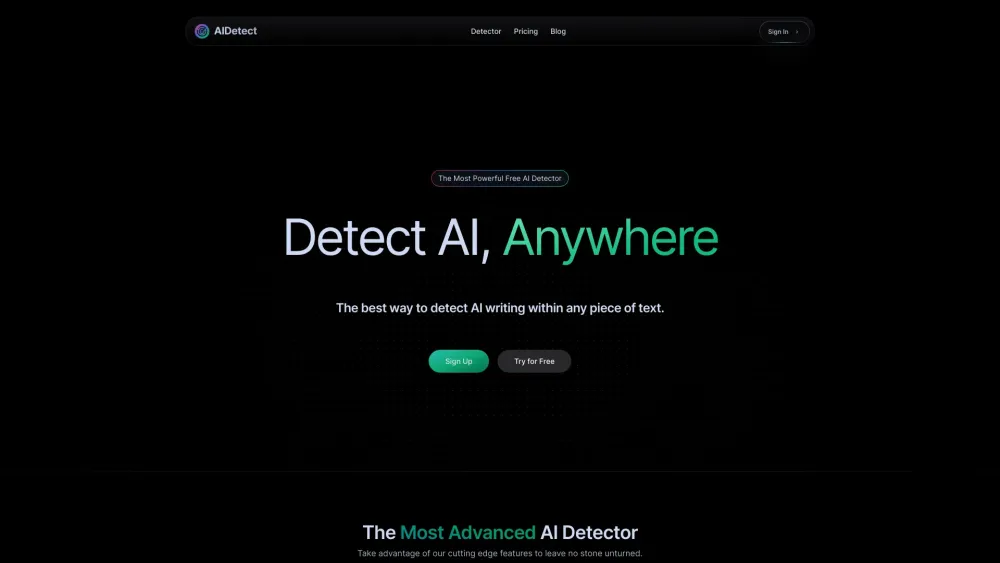Microsoft Prohibits Law Enforcement from Using OpenAI Technology in Facial Recognition Cameras
Most people like

Transform your written content into captivating videos effortlessly with AI technology. Discover how easy it is to convert text into visually stunning presentations that engage your audience, enhance storytelling, and elevate your marketing strategies. Unlock the power of AI-generated videos and revolutionize the way you share your ideas!

Transform your user engagement with AI-powered assistance that enhances interaction seamlessly. Experience improved user satisfaction and support without any interruptions.

Introducing the ultimate YouTube summarizer, designed to condense videos into concise, searchable summaries in any language. Transform how you consume content on YouTube and easily access essential information without the need to watch lengthy videos.

Detecting AI writing probability is becoming increasingly important as artificial intelligence tools evolve in sophistication. By understanding how to identify AI-generated text, we can enhance our ability to discern authentic human expression from machine-generated content. This guide will explore effective strategies and methods for assessing the likelihood that a piece of writing was produced by AI, equipping you with the skills to navigate this rapidly changing landscape. Whether you're a content creator, educator, or simply curious, these insights will empower you to critically evaluate the information you consume.
Find AI tools in YBX
Related Articles
Refresh Articles
